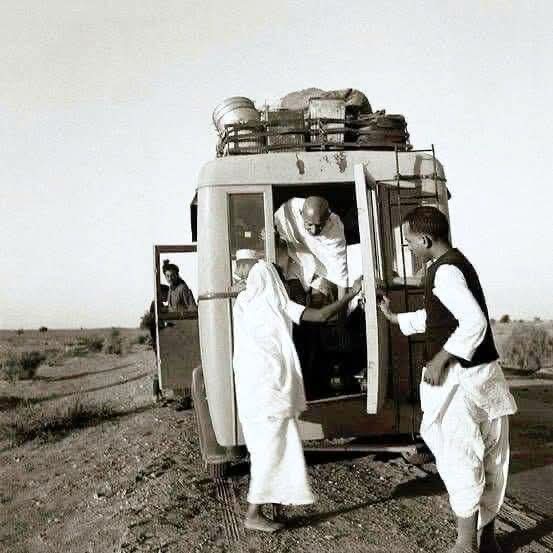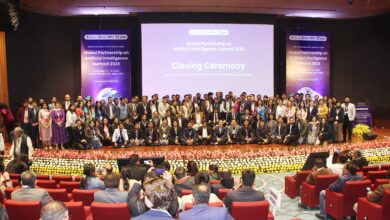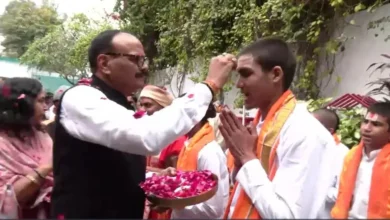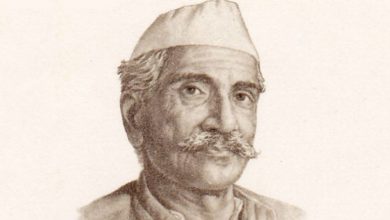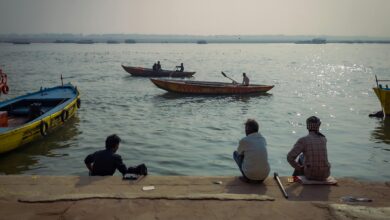Mahatma Gandhi, Rev. Philip Lea, and CMS College
Siby Kollappallil Joseph
CMS College, Kottayam, virtually launched “CMS Connect,” a web portal for alumni and fraternity, on August 30, 2005. The portal, named “Choola Maram” (the Malayalam name for the Casuarina equisetifolia tree), allows academic generations to connect with the institution’s heritage and stay updated on the college’s evolving story.
As an alumnus, I attended the virtual event and later registered on the web portal. The campus is indeed filled with Casuarina trees, which are a hallmark of the institution. With over 200 years of history, dating back to 1817, CMS College is a heritage institution that spans about ten generations, underscoring its significance in Kerala’s and India’s educational landscape.
Interestingly, the last European Principal, Rev. Philip Lea, met Mahatma Gandhi in 1937 and sought his help in restoring peace on campus. A group of students had blocked the passage of those who wanted to attend classes, engaging in hooliganism. In response to Rev. Lea’s letter, Gandhi wrote a postcard and issued a press statement. At the time, Gandhi was touring the North-West Frontier Province (NWFP) with Khan Abdul Ghaffar Khan.
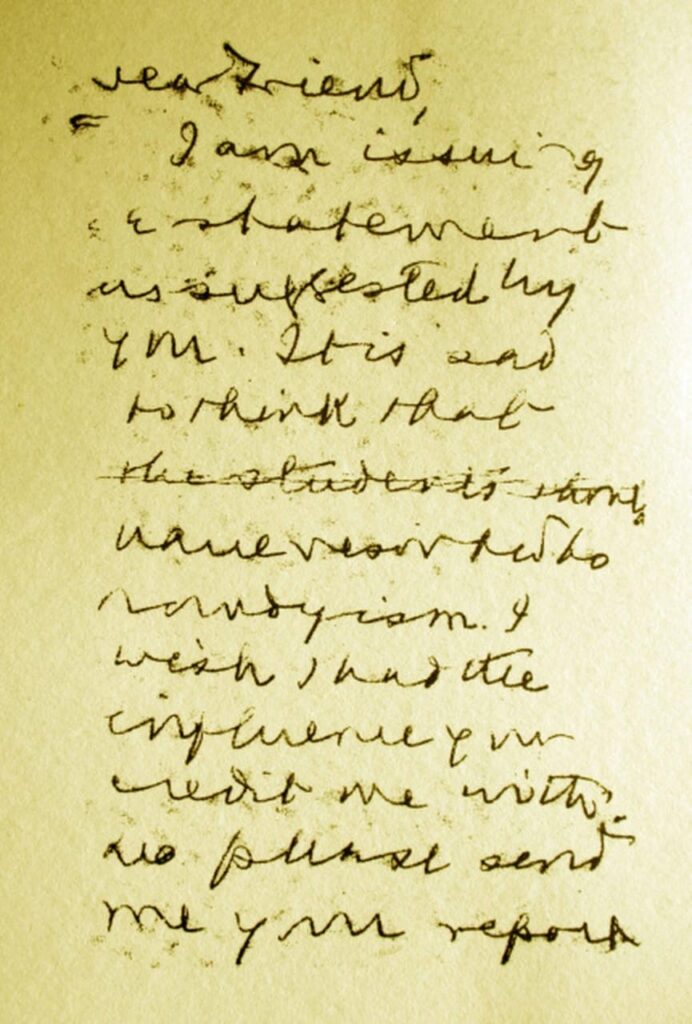
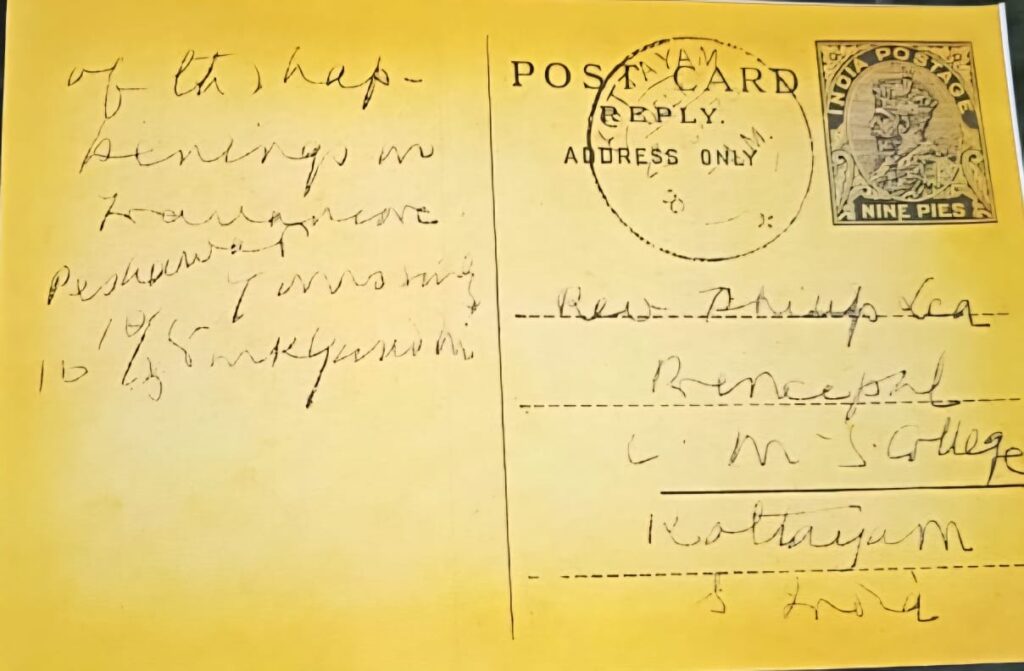
The postcard, dated October 16, 1938, reads:
“Dear friend,
I am issuing a statement as suggested by you. It is sad to think that the students should have resorted to rowdyism. I wish I had the influence you credit me. Do please send me your report of happenings in Travancore.
Yours sincerely,
M.K. Gandhi”
It was only in 2010 that this postcard was found in the collection of Rev. Philip Lea and was handed over to the College archives by his son, Dr. John Lea, when he came to the College for a function. Gandhi issued a statement to the press from Mardan on October 17, 1938, referring to the two letters from schoolmasters, besides others from laymen, complaining of students’ rowdyism in Travancore. He also referred to the letter received from the Principal of C.M.S. College, Kottayam.
Mahatma Gandhi wrote: “This violent participation by students in a struggle which its authors claim to be absolutely non-violent makes progress difficult, if not impossible. So far as I know, the leaders of the movement do not want the students, even if they wish to participate, to depart in any way from the non-violent way. Obstruction, rowdyism, and the like are naked violence. I am credited with influence over students. If I have any, I would ask them to observe non-violence in thought, word, and deed. If, however, the forces of violence cannot be controlled by those who are in charge of the movement, it may be a question for them whether, in the interest of the movement itself, it is not wise to suspend civil disobedience. I must not presume to lay down the law from this distance, but I do feel from the evidence before me that the leaders would incur grave risk if they allowed students to think that their violence would help the movement or that it is secretly liked by the leaders.” (Harijan, 22-10-1938, CWMG – LXVIII)
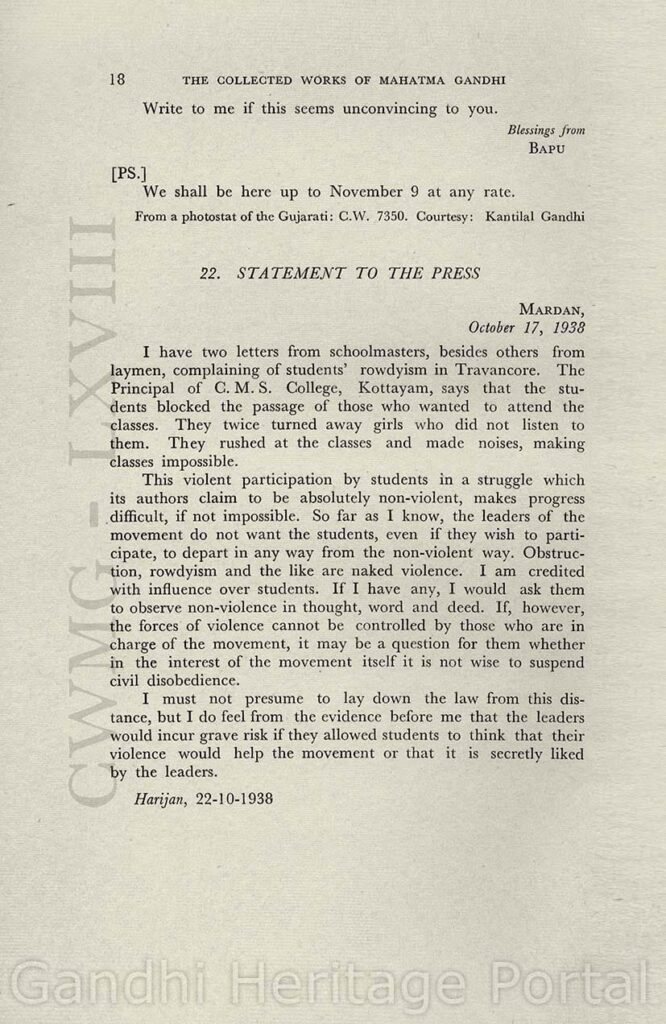
This showcases Mahatma’s commitment to non-violence and his ability to build strong and cordial relationships with missionaries, even when he was spearheading a movement against the British. Despite the difficulties, the college continued to function relatively smoothly in the midst of the freedom movement, showcasing the respect and affection earned by Rev. Lea, even from Mahatma Gandhi. Though a hostel is named after Rev. Lea’s name, his connection with Mahatma Gandhi largely remains unknown. As an alumnus, I thought it would be appropriate to shed more light on Gandhi’s connection to the college on this occasion, when the college is trying to link the heritage of the College to generations of students.
About the Author
Dr. Siby K. Joseph is an alumnus of CMS College, Kottayam. He completed his pre-degree course at the college and later earned a Bachelor’s degree in Economics from the same institution. As an academic and noted Gandhi scholar, he has authored several books on Gandhian thought, peace, and nonviolence. Currently, he serves as the Director of the Library and Research Centre for Gandhian Studies at Sevagram Ashram Pratishthan in Wardha, Maharashtra. His email address is directorjbmlrc@gmail.com.

